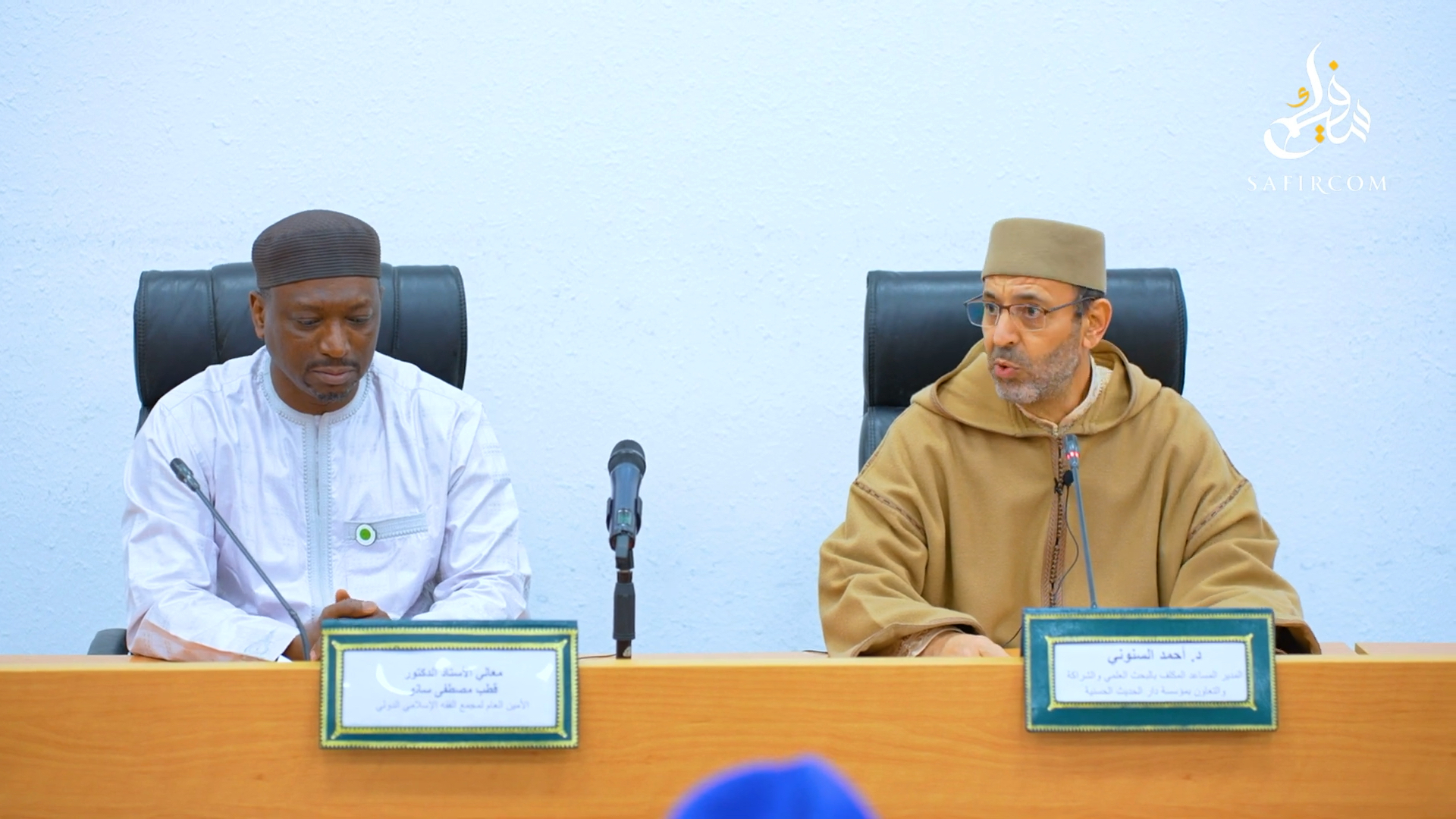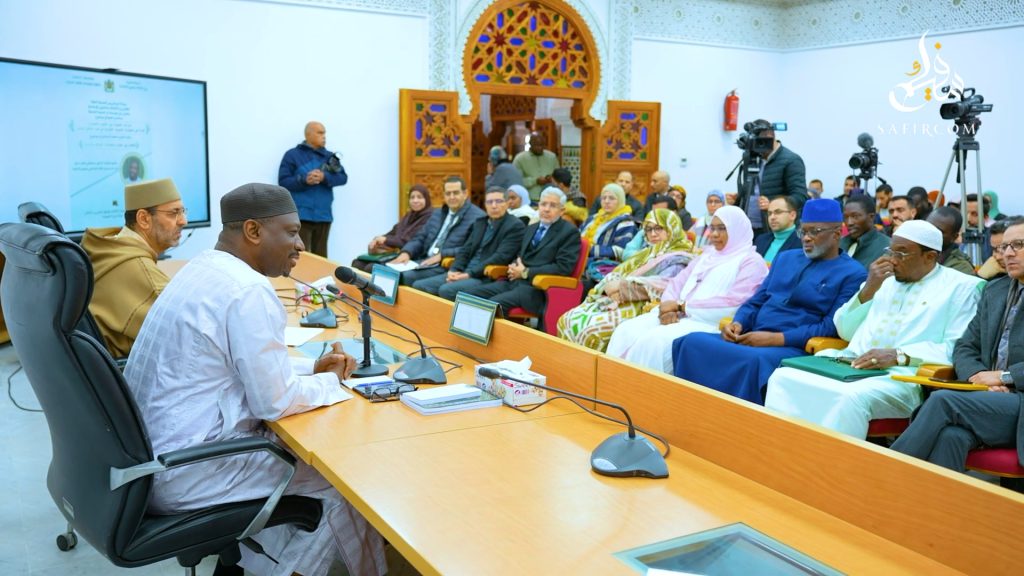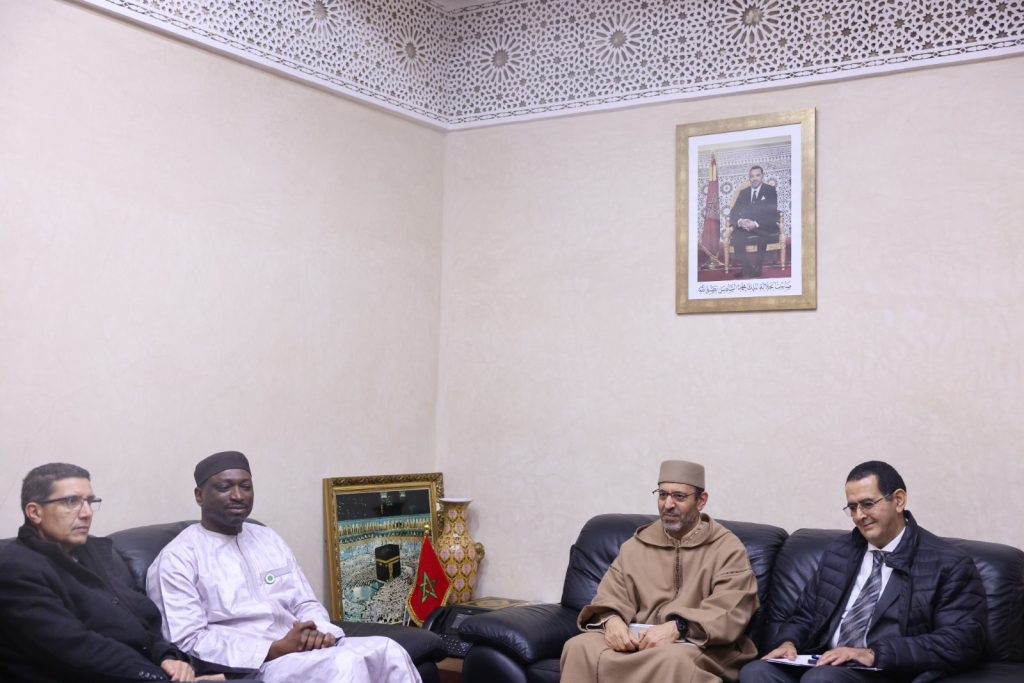
On the sidelines of the Hassanian organized by the Ministry of Awqaf and Islamic Affairs in the Kingdom of Morocco, H.E. Prof. Koutoub Moustapha Sano, Secretary General of the International Islamic Fiqh Academy (IIFA), delivered a lecture entitled “Educational Stages between Tradition and Renewal: A Reading of the Traditional Educational System in the Light of Reality” on Tuesday 16 Ramadan 1445, corresponding to 26 March 2024 at Dar Al-Hadith Al-Hussaniya in the Moroccan capital, Rabat.
His Excellency began his lecture by extending sincere thanks and appreciation to the leaders of Dar Al-Hadith Al-Hassaniya for the warm welcome and for their organization of this scientific lecture, which he described as a renewed look at a thorny issue of education in the world in general and in the Islamic world in particular, namely the issue of reviewing educational stages as well as reviewing educational curricula and systems.
His Excellency then explained that all educational curricula and stages are part of what is known as the educational system, which is a network that combines the human being, which includes the academic staff or the students in these institutions, the institutions that provide information to this human being, and the educational stages that the human being needs in order to access the information and become at a level where he can participate in the educational system. These four things make up the educational system: The human being, The teaching staff, the framework that provides the information, the human being to whom it is provided, and the place: The institutions through which this information is delivered to this person, and then time: These are the educational stages that a person goes through, the stage they call the kindergarten stage, the primary stage, the middle stage, the secondary stage, the university stage, and the post-university stage. He pointed out that all these phases affect the success of this educational system and that talking about the renewal of this system is supposed to be comprehensive, explaining that attention should not be on the issue of reviewing curricula while we forget to review the educational stages.
Accordingly, His Excellency provided an accurate depiction of the history of the emergence of the current educational stages, mentioning that their history dates back to the nineteenth century, specifically in 1893, with the beginning of the second industrial revolution, saying: “These stages reached us after the second industrial revolution. Industrial revolutions are four: The first industrial revolution, started from 1840 to approximately 1869, followed by the second industrial revolution from approximately 1960, the third revolution started after that until 2000 and the fourth revolution started in 2000 and continues to this day. This revolution brought the Internet, AI, digital communication, and things that were unthinkable to a human being from the past.
His Excellency added: “The basic educational stages were actually created following the second industrial revolution after education in the past was focused on teaching writing and reading only. Education in the first stage was not available to everyone; education was limited to a certain class in society, and not everyone, regardless of their abilities and potential, was accepted in education.” He also added, “… that in the second industrial revolution we were forced, and reality needed more than one learner, in history: Russia is considered the country that started with 12 years of basic education, that is, almost from 1892, the opinion was settled that the educational stages should be 12 years, and the student becomes a scientist, and then becomes a reference for the society in which he lives. After that came America, but education at that stage was limited and limited to writing and reading, and then from time to time math, physics and others were added to them, and whatever was published or whenever a science became available to those who mastered it was added to these subjects that are taught in these stages.”
His Excellency then spoke about the reality of the educational stages that we inherited and which have become part of our daily life, calling for the importance of caring for these educational stages through which a vision is presented in reviewing these stages so that they become stages that reflect the reality in which we live and meet the ambitions and challenges faced by the Islamic nation in particular, explaining that the educational stages are the school years that young people receive Therefore, there is an urgent need to review the traditional educational stages in order to adjust the amount, quantity and type of information, skills and knowledge required at each stage of education in light of the challenges of the current era.
His Excellency concluded his lecture by calling for taking advantage of the modern industrial revolution and this boom in information and means of education, keeping all stages of education within these limits, and preparing a generation that enables it to participate in building society. He also called for the need to work to reduce the information provided by these educational institutions, which is an improvement information but does not constitute necessary and vital knowledge that helps develop nations and civilizations.
Read Also
Lastest










